Arterial Disease Treatments
Treatment Options for Peripheral Arterial Disease (PAD) & Non-Healing Ulcers
The treatment for peripheral arterial disease (PAD) and, in turn, non-healing ulcers has two main goals. One is to manage the symptoms, including leg pain, allowing you to resume your normal physical activities. The second one is to stop the progression of atherosclerosis in the body, which reduces the risk of stroke and heart attack.
In addition to recommending lifestyle changes such as getting regular exercise and eating a healthy diet, Pedes Orange County provides a comprehensive array of treatments to slow the progression of peripheral artery disease (PAD). These treatments are designed to improve blood flow and prevent complications, thereby addressing non-healing ulcers and wounds effectively.
Our medical team uses advanced diagnostic techniques and personalized care plans to ensure optimal outcomes for each patient. By combining the following medical interventions with lifestyle modifications, we aim to enhance overall vascular health and quality of life.
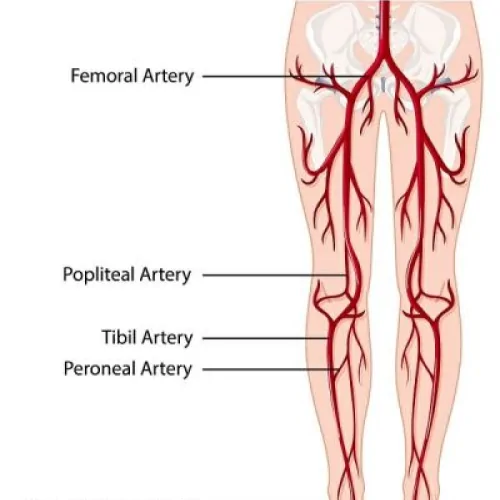
Atherectomy
Minimally Invasive Treatment to Reduce Leg Swelling and Restore Blood Flow
An atherectomy is a minimally invasive vascular procedure used to remove plaque buildup inside the arteries, improving blood flow to the lower extremities. It is commonly performed to treat peripheral artery disease and reduce symptoms such as leg pain, numbness, or slow-healing wounds.
During the procedure, your vascular specialist makes a small incision to insert a thin catheter into the affected artery. Using advanced imaging guidance, the catheter’s tip gently removes plaque buildup and collects the debris in a small chamber to keep the bloodstream clear.
Depending on the severity of blockage, the procedure may be repeated several times to ensure optimal circulation. Atherectomy is performed under local anesthesia, allowing patients to remain comfortable while avoiding the downtime associated with open surgery.
This treatment helps patients regain mobility, relieve discomfort, and prevent future complications related to PAD.
Angioplasty
Widening Narrowed Arteries to Improve Circulation
Angioplasty, also known as percutaneous transluminal angioplasty (PTA), is a minimally invasive procedure that helps open narrowed or blocked arteries caused by peripheral artery disease. It is often performed alongside atherectomy to restore healthy blood flow and relieve symptoms such as leg cramping, pain while walking, or coldness in the feet.
During angioplasty, a small, flexible catheter is inserted into the affected artery and guided to the area of narrowing using real-time imaging. Once in position, a tiny balloon at the catheter’s tip inflates to gently press the plaque against the artery walls. This process widens the vessel, improving circulation and allowing oxygen-rich blood to flow more freely to the legs and feet.
Angioplasty is performed under local anesthesia and typically completed in less than an hour, with most patients returning home the same day. The procedure offers effective symptom relief with a short recovery period and minimal discomfort.
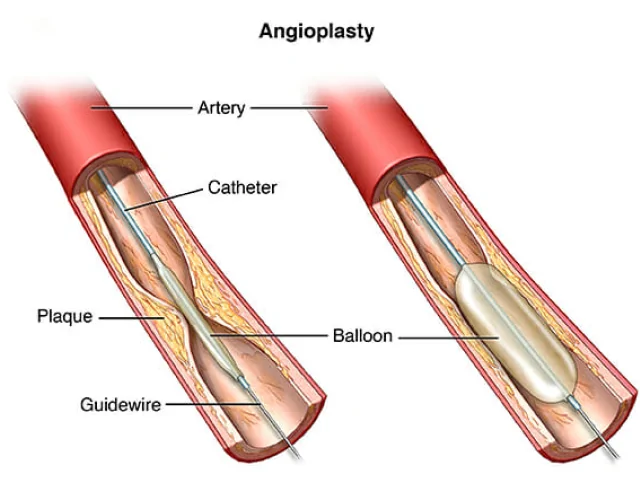
Stenting for Peripheral Artery Disease
Supporting Artery Walls After Angioplasty or Atherectomy
A stent is a small mesh tube used to keep arteries open after plaque removal. Stenting is often performed in combination with angioplasty or atherectomy to help maintain healthy blood pressure and prevent arteries from narrowing again.
After the plaque is removed or compressed during treatment, the stent is carefully placed inside the artery to provide structural support. This reinforcement helps the vessel remain open long-term, reducing the risk of recurring blockages and improving circulation to the lower extremities.
Stenting is a safe and effective way to restore blood flow for patients with peripheral arterial disease, helping relieve pain, promote wound healing, and reduce the risk of future complications.
PAD Treatment Center in Irvine, CA
If you’re suffering from arterial disease, don’t hesitate to get in touch with our vascular experts today.
Get in touch with Pedes Orange County in Irvine, CA, at (949) 373-4890 to schedule an appointment with one of our dedicated specialists or contact us online at any time. We’re eager to provide you with more information about our specialized arterial disease treatments.
Contact Us Today


Our Vascular Disease Physicians
The physicians at Pedes Orange County devote their lives to saving limbs and minimizing pain. Our conveniently located, state-of-the-art facility is designed for your comfort and utilizes cutting-edge technology to provide minimally invasive treatments. Our vascular specialists are board-certified and some of the best in Southern California. Personable staff members make every visit a positive experience, with short wait times and an efficient, streamlined process that ensures you leave feeling educated and confident that you are in good hands.

J. Joseph Hewett, M.D.
Vascular Specialist
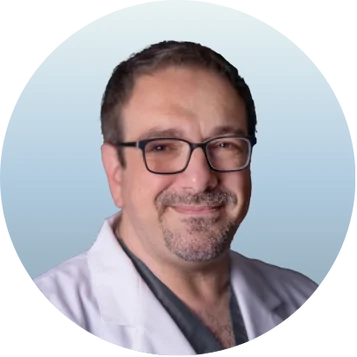
Neil K. Goldstein, M.D.
Vascular Specialist
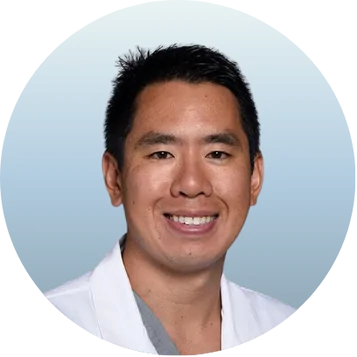
Derrick Tran, MD
Vascular Specialist
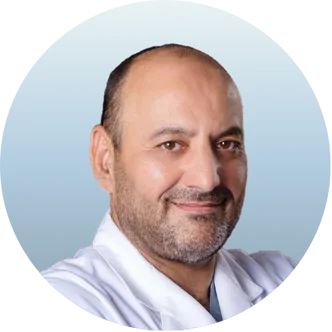
Mohammad Jaber, M.D.
Vascular Specialist
Why Pedes Orange County?
What to Expect from Your Visit to Pedes
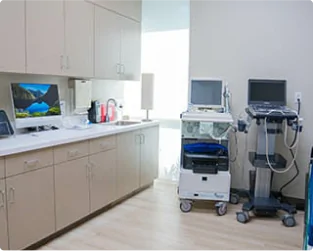
Ultrasound
Advanced ultrasound-guided examination techniques will be used to visualize the veins, arteries, or both, in your legs. This is often used in the diagnostic process to detect the presence and extent of disease.
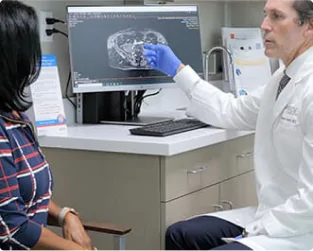
Consult
Once we review the results of your diagnostic tests, our physicians will collaborate with you to develop a personalized treatment plan, ensuring the best course of treatment for your specific condition.
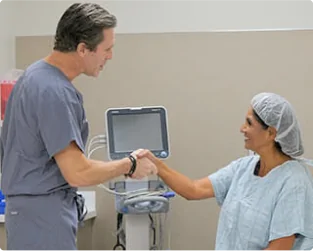
Treatment
Your treatment plan will be personalized to you and your individual needs. At Pedes, we specialize in minimally invasive procedures and nonsurgical treatments, all of which are performed by our dedicated vascular physicians within the comfort of our state-of-the-art facility.

Follow up
We ensure our patients receive continuous care and support with regular follow-up visits. Each follow-up visit is scheduled at the time of your in-office appointment. Should you have a concern between
appointments, we encourage you to call our office and get scheduled at any time.
Vascular Disease
Pre-register for your visit to Pedes Orange County by downloading our patient forms.



